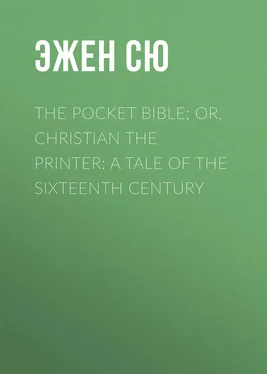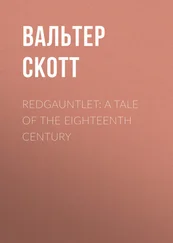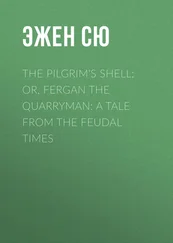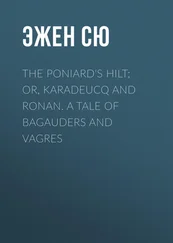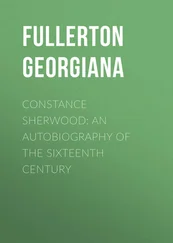Эжен Сю - The Pocket Bible; or, Christian the Printer - A Tale of the Sixteenth Century
Здесь есть возможность читать онлайн «Эжен Сю - The Pocket Bible; or, Christian the Printer - A Tale of the Sixteenth Century» — ознакомительный отрывок электронной книги совершенно бесплатно, а после прочтения отрывка купить полную версию. В некоторых случаях можно слушать аудио, скачать через торрент в формате fb2 и присутствует краткое содержание. Жанр: literature_19, foreign_antique, foreign_prose, на английском языке. Описание произведения, (предисловие) а так же отзывы посетителей доступны на портале библиотеки ЛибКат.
- Название:The Pocket Bible; or, Christian the Printer: A Tale of the Sixteenth Century
- Автор:
- Жанр:
- Год:неизвестен
- ISBN:нет данных
- Рейтинг книги:3 / 5. Голосов: 1
-
Избранное:Добавить в избранное
- Отзывы:
-
Ваша оценка:
- 60
- 1
- 2
- 3
- 4
- 5
The Pocket Bible; or, Christian the Printer: A Tale of the Sixteenth Century: краткое содержание, описание и аннотация
Предлагаем к чтению аннотацию, описание, краткое содержание или предисловие (зависит от того, что написал сам автор книги «The Pocket Bible; or, Christian the Printer: A Tale of the Sixteenth Century»). Если вы не нашли необходимую информацию о книге — напишите в комментариях, мы постараемся отыскать её.
The Pocket Bible; or, Christian the Printer: A Tale of the Sixteenth Century — читать онлайн ознакомительный отрывок
Ниже представлен текст книги, разбитый по страницам. Система сохранения места последней прочитанной страницы, позволяет с удобством читать онлайн бесплатно книгу «The Pocket Bible; or, Christian the Printer: A Tale of the Sixteenth Century», без необходимости каждый раз заново искать на чём Вы остановились. Поставьте закладку, и сможете в любой момент перейти на страницу, на которой закончили чтение.
Интервал:
Закладка:
"Master, I was passionately given to the pleasures of life."
"And you, Inigo of Bobadilla?"
"Master, all obstacles upset me. I was weak and pusillanimous. My spirit lacked energy. My nature was cowardly and springless."
"And you, John Lainez?"
"Master, I had excessive confidence in myself. Extreme vanity – "
"And you, Rodriguez of Azevedo?"
"Master, my heart ran over with tenderness. A touching act, an affectionate word, was enough to bring the tears to my eyes. I was kind to all, was ever eager to run to the help of our fellow men. I was of a confiding and accessible nature."
"And you, Alfonso Salmeron?"
"Master, pride dominated me. I was proud of my vigor of bone and of my intelligence. I deemed myself a superior man."
"And you, John Lefevre?"
"Master, my mountaineer tenacity never looked upon any obstruction but to overcome it. I brooked no contradiction."
"Aye! Such were you. And what are you now? Answer, John Lefevre. To hear one of you is to hear all the rest."
"Master, we are no longer ourselves. Your soul has absorbed ours. We are now the instruments of your will. We are the body, you the spirit. We are submissive slaves, you the inflexible master. We are the clubs, you the hand. Without your animating breath we are but corpses."
"How did you arrive at this complete self-effacement? In what manner was the absorption of your personalities in mine effected?"
"Master, the study of your Spiritual Exercises effected the miracle."
Loyola seemed satisfied. With his chin resting upon his two hands crossed over the head of his heavy staff, he remained silent for a moment. Presently he resumed: "Yes, that you were; now you are this. And I myself, what was I, and what have I become? I shall tell you. I was a haughty Grandee of Viscaya, a handsome cavalier, a valiant captain, a daring seducer, and lucky swordsman. The hand of God suddenly smote me in war and rendered me a cripple. Great was my despair! To renounce women, dueling, horses, the battle, the command of my regiment, which I had broken in, drilled and fashioned by military discipline! Nailed to a couch of tortures, which I welcomed in the hope of removing my deformity, I was seized by Grace! I felt myself full of strength and of energy. I was possessed of an invincible craving for dominion. At that juncture the Holy Ghost said to me: 'Devote thyself to the triumph of the Catholic Church. Thy dominion shall extend in the measure of thy faith.' I then asked myself what services could I render the Catholic Church. I looked around me. What did I see? The spirit of Liberty, that pestilential emanation of a fallen humanity, everywhere at war with Authority, that sacred emanation of Divinity. I promised to myself to curb the spirit of Liberty with the inflexible curb of Authority, identically as I had formerly subjugated indomitable horses. The goal being set, what were the means to reach it? I looked for them. I wished first to experiment upon myself, to determine upon myself the extent to which, sustained by faith in the idea a man pursues, he can shake off his former self. Rich by birth, I begged my bread; a haughty Grandee, I exposed myself to outrage; a skilful swordsman, I submitted to insult; sumptuous in my habits of dress, careful of my personal appearance, I have lived in rags and in the gutter. Ignorant of letters, I took my seat at the age of thirty among children on the benches of the Montaigu College, where any slight inattention was visited upon me with the whip. Some of my purposes, being detected by orthodox priests, earned for me their persecution and I was ostracised. I stood it all without a murmur. From that time, certain that I could demand from my disciples the sacrifices I imposed upon myself, I made you that which you are required to be. You have said it. You are the members, I the spirit; you are the instrument, I the will. The hour for action has come; our work calls us. What work is that?"
"That work is the insurance of the reign of authority upon earth."
"What authority?"
"Master, there is but one. The authority of God, visibly incarnated in His vicar, the Pope, who is in Rome."
"Do you understand by that the spiritual or the temporal authority?"
"Master, he who has authority over the soul must have authority over the body also. He who dictates the Divine law must dictate the human law also."
"What must the Pope be?"
"Pontiff and Emperor of the Catholic world."
"Who, under him, is to govern the nations?"
"The clergy."
"Must temporal authority, accordingly, also belong to the Roman Catholic and Apostolic Church?"
"All authority flows from God. His ministers are by divine right the masters of the nations, and must be invested with full authority."
"Is that, then, the work in hand?"
"Yes, master."
"Are there any obstacles to its accomplishment?"
"Enormous ones."
"What are they?"
"First of all, the Kings."
"Next?" queried Loyola impatiently. "Next?"
"The indocility of the bourgeois classes."
"Next?"
"The new heresy known by the name of the Reformation."
"Next?"
"The printing press, that scourge that every day and everywhere spreads its ravages."
"Next?"
"The too publicly scandalous habits of the ecclesiastics."
"And lastly?"
"Often the ineptness, the feebleness, the insatiable cupidity and the excesses of the papacy."
"These, then, are the obstacles to the absolute rule of the Catholic world by her Church?"
"Yes, master."
"Is it possible to overcome these obstacles?"
"We can, master, provided your spirit speaks through our mouths, and your will dictates our actions."
"All honor to the Lord – let's begin with the Kings. What are they with regard to the Popes?"
"Their rivals."
"What should they be?"
"Their first subjects."
"Would it not be preferable for the greater glory and security of the Catholic Church that royalty were abolished?"
"That would be preferable."
"How are Kings to be absolutely subordinated to the Popes? Or, rather, how is royalty to be destroyed?"
"By causing all its subjects to rise against it."
"By what process?"
"By unchaining the passions of an ignorant populace; by exploiting the old commune spirit of the bourgeoisie; by fanning the hatred of the seigneurs, once the peers of Kings in feudal days; by setting the people against one another."
"Is there a last resort for the riddance of Kings?"
"The dagger, or poison."
"Do you understand by that that a member of the Church may and has the right to stab a King; may and has the right to poison a King?"
"Master, it is not the part of a monk to kill a King, whether openly or covertly. The King should first be paternally admonished, then excommunicated, then declared forfeit of royal authority. After that his execution falls to others ." 12 12 "Executio ad alios pertinet." – Bellarmin, vol. I, chap. VII, p. 147.
"And who is it that declares Kings forfeit of royal authority, and thus places them under the ban of mankind, and outside the pale of human and divine law?"
"Either the people's voice, or an assembly of priests and theologians, or the decision of men of sense." 13 13 Mariana, De Rege, vol. I , chap. VI, p. 60.
"Suppose royal authority is overthrown by murder, or otherwise, will not the power thereby fall either into the hands of the nobility and the seigneurs, or into those of the bourgeoisie, or into the hands of the populace?"
"Yes, but only for a short interval. If the power falls into the hands of the populace, the seigneurs, that is, the nobility and the bourgeoisie, are to be turned against the populace. If the power should fall into the hands of the bourgeoisie, then the populace and the nobility are to be turned against the bourgeoisie; finally, in case the power falls into the hands of the nobility, the bourgeoisie and the populace are to be turned against the nobility."
Читать дальшеИнтервал:
Закладка:
Похожие книги на «The Pocket Bible; or, Christian the Printer: A Tale of the Sixteenth Century»
Представляем Вашему вниманию похожие книги на «The Pocket Bible; or, Christian the Printer: A Tale of the Sixteenth Century» списком для выбора. Мы отобрали схожую по названию и смыслу литературу в надежде предоставить читателям больше вариантов отыскать новые, интересные, ещё непрочитанные произведения.
Обсуждение, отзывы о книге «The Pocket Bible; or, Christian the Printer: A Tale of the Sixteenth Century» и просто собственные мнения читателей. Оставьте ваши комментарии, напишите, что Вы думаете о произведении, его смысле или главных героях. Укажите что конкретно понравилось, а что нет, и почему Вы так считаете.
